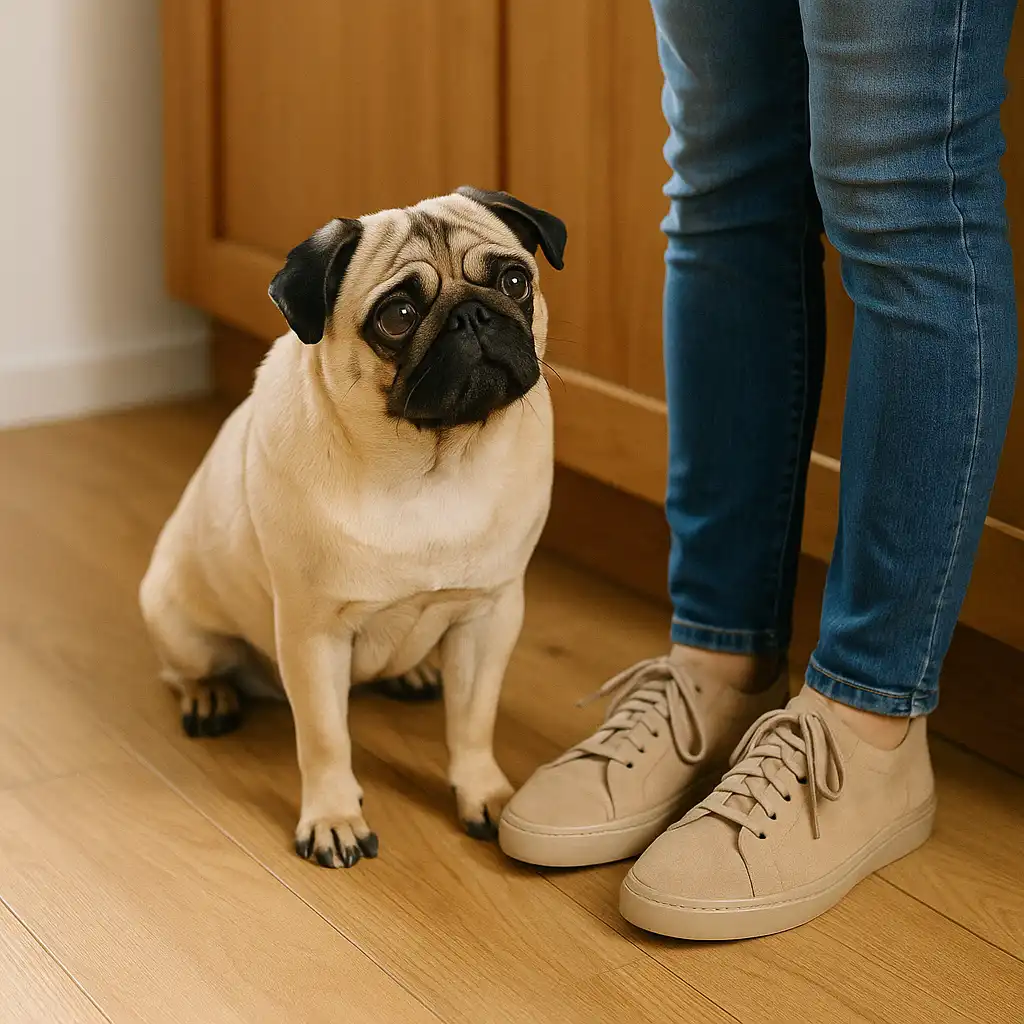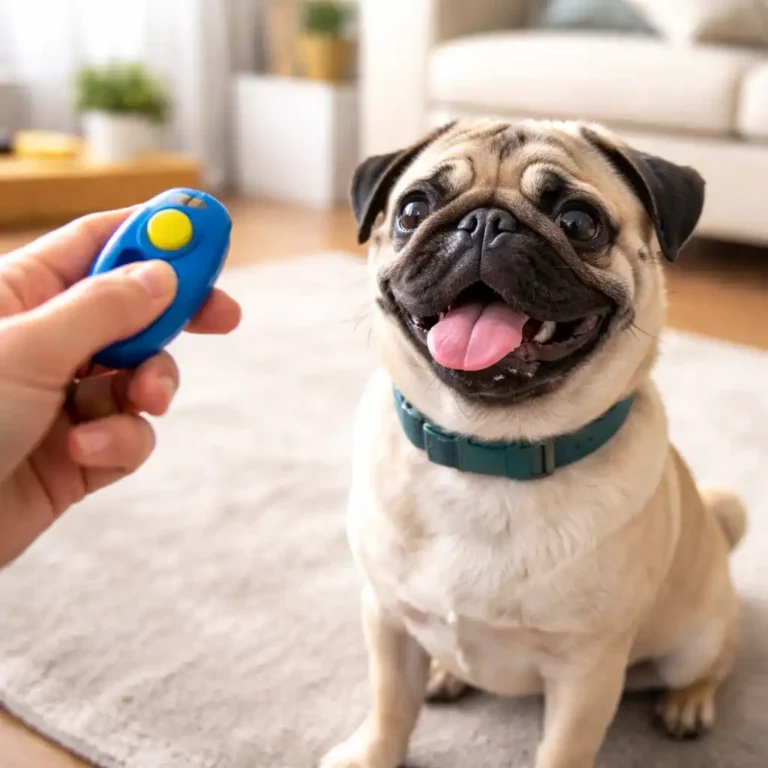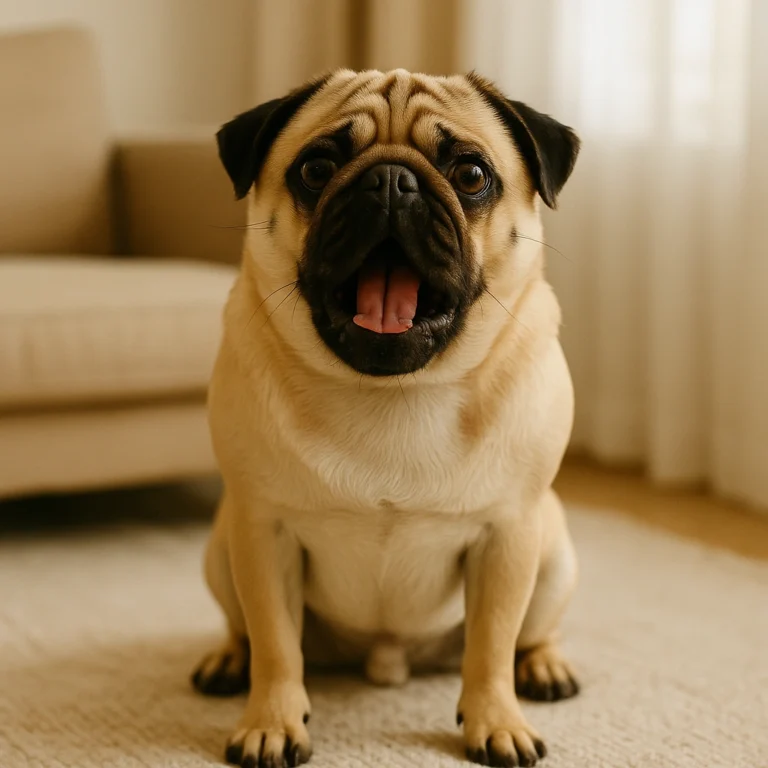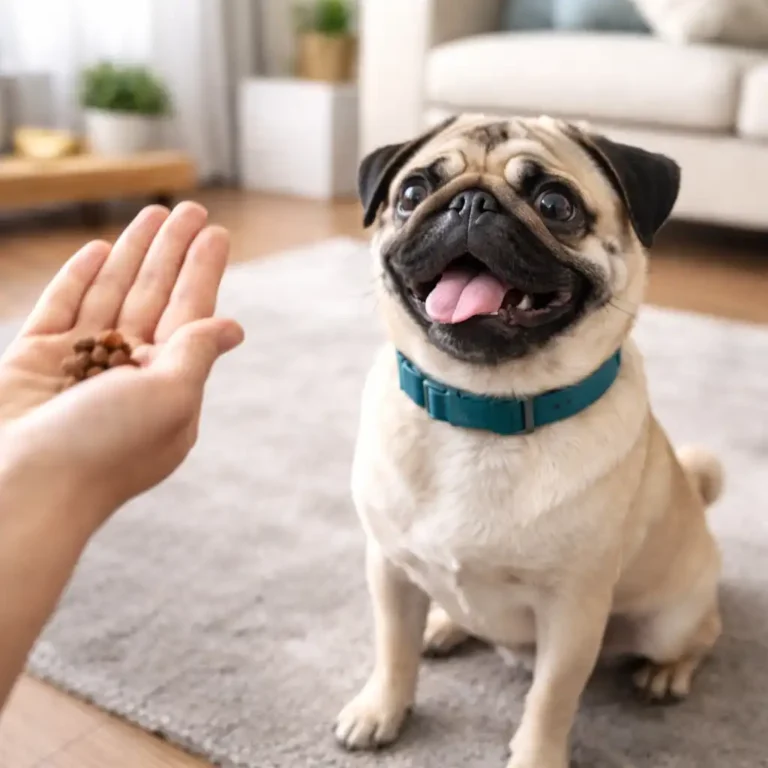Why Does My Pug Follow Me Everywhere? Understanding This Common Pug Behavior

Disclosure: This post contains affiliate links. As an Amazon Associate, I earn from qualifying purchases—at no extra cost to you.
Last Updated: December 2025
If your pug follows you from room to room, waits outside the bathroom, or settles wherever you sit, you’re not imagining it. This is one of the most common pug behaviors, and in most cases, it’s completely normal. It isn’t about control or bad habits—it’s usually about connection.
Knowing why your pug sticks so close helps you stay relaxed about it and spot the rare cases where extra support might be needed.
👉 If you’re working through several behavior topics at once, this pug training and behavior guide explains how attachment, routines, and confidence-building fit together.
🔍 Pugs Are Bred to Be Companion Dogs
Pugs were bred specifically to be companions. They weren’t meant to work independently or stay far from their people.
Following you around is often a natural expression of comfort and trust rather than something they’ve learned incorrectly.
🔍 Strong Attachment to Their Favorite Person
Many pugs form a deep bond with one person in the household. That person becomes their main source of security and routine.
If your pug follows you more than others, it usually means you’re their safe point.
🔍 Curiosity and Routine Tracking
Pugs are observant dogs. They quickly learn daily patterns and enjoy knowing what’s coming next.
Following you helps them stay involved and anticipate meals, walks, playtime, or rest.
🔍 Attention-Seeking Behavior
Sometimes, following is simply a request for interaction. Pugs are social and enjoy being involved in whatever you’re doing.
If the behavior increases when you’re busy or distracted, your pug may be hoping for attention or engagement.
🔍 Comfort and Emotional Security
Being near you provides reassurance. This is especially true in new environments, during routine changes, or after a big day.
Puppies and recently adopted pugs often show stronger following behavior while they settle in.
🔍 When Following May Signal Anxiety
Following alone isn’t a problem. It becomes a concern only when paired with distress during separation, such as pacing, vocalizing, or destructive behavior when you leave.
In those cases, gently building independence and confidence matters more than stopping the following itself.
📌 Key Takeaways
- Following is a normal pug trait
- Pugs are bred for close companionship
- Strong attachment reflects bonding and trust
- Curiosity and routine play a role
- Anxiety matters more than the behavior alone
🟢 FAQs
Q: Is it normal for my pug to follow me everywhere?
Yes. This is very common and usually healthy behavior.
Q: Should I discourage my pug from following me?
Only if it’s paired with anxiety or distress when you’re apart.
Q: Can following lead to separation anxiety?
It can if independence isn’t gently encouraged over time.
Q: Do pugs outgrow following behavior?
Some become more relaxed with age, but many remain close companions.
✅ Conclusion
Pugs follow their people because closeness is part of who they are. In most cases, this behavior reflects trust, comfort, and strong bonding—not a problem that needs fixing. As long as your pug can settle calmly when alone, following you everywhere is simply part of their affectionate nature.






